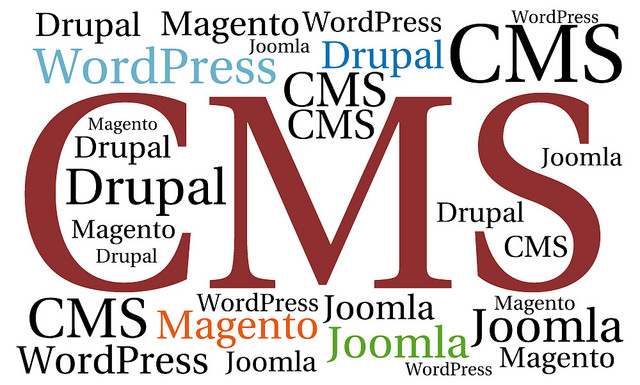Key Difference – CMS vs Framework
The key difference between CMS and framework is that a CMS is an application that creates and manages digital content while a framework is a software that contains a generic functionality that can be modified by additional user-written code depending on the application.
Both CMS and framework are software programs that develop applications. CMS is a Content Management System while a framework is a reusable environment that’s part of a larger software platform.
CONTENTS
1. Overview and Key Difference
2. What is a CMS
3. What is a Framework
4. Relationship Between CMS and Framework
5. Side by Side Comparison – CMS vs Framework in Tabular Form
6. Summary
What is a CMS?
CMS stands for Content Management System. The main objective of using CMS is to manage the content of a website. It also consists of features to manage the web application easily. Organizations use CMS various purposes such as e-commerce, online reservations, educational websites and many more.

A CMS helps to perform various operations. In the first place, the user can format the layout, add, modify and remove content easily. It mainly allows publishing web pages, creating new themes, using already existing themes, indexing and searching. One can further extend the application using plugins or extensions as well. It is also possible to add different multimedia files such as images, video, and audio to make the webpages more presentable. In addition, users can create multilingual websites using a CMS. Some common and popular CMS are Drupal, WordPress, and Joomla. They are quite popular among the community because of their simplicity and ease of use.
What is a Framework?
A framework provides a standard way to build and deploy applications. It contains the common code with generic functionalities. Therefore, the developer can modify and develop according to the application. There are many advantages of using a framework as well. A framework provides a methodology for organizing code. It also improves code reusability. A software requirement might change any time, but it is easy to do modifications by using a framework. There are also pre-built and pre-tested tools available. A framework has many components/divisions. Thus, it is easier for many developers to work on various aspects of the project.
Additionally, a software framework can include support programs, compilers, code libraries, tools as well as Application Programming Interfaces (APIs). There are many frameworks in the industry. For example, CakePHP and CodeIgniter are open source web frameworks for building dynamic web pages; they are written in PHP. Django and Flask, on the other hand, are two frameworks written in Python.
What is the Relationship Between CMS and Framework
- A CMS is built upon a framework.
What is the Difference Between CMS and Framework?
CMS vs Framework | |
| A CMS or content management system is a computer application that is used for creating and modifying digital content. | A framework is a software which contains a generic functionality that can be modified by additional user-written code depending on the application. |
| Simplicity | |
| Learning a CMS is easier than learning a framework. | Learning a framework is harder than learning a CMS and requires a lot of time. |
| Usage | |
| CMS helps to manage digital content. | A framework helps to organize the code to make the application development process simpler and flexible. |
| Example | |
| Drupal, WordPress, and Joomla are some examples of CMS. | CakePHP and CodeIgniter are some examples of frameworks. |
Summary – CMS vs Framework
The difference between CMS and framework is that a CMS is an application that creates and manages digital content while a framework is a software which contains a generic functionality modifiable by additional user-written code depending on the application.
Reference:
1. “Content Management System.” Wikipedia, Wikimedia Foundation, 14 Apr. 2018, Available here.
2. “Software Framework.” Wikipedia, Wikimedia Foundation, 14 Apr. 2018, Available here.
Image Courtesy:
1. “WordPress CMS”(CC BY 2.0) by SEO Link Building
ncG1vNJzZmivp6x7pbXFn5yrnZ6YsqOx07CcnqZemLyue8OinZ%2Bdopq7pLGMm5ytr5Wau26vzKxkmqaUYrOzrcyerqiqm2Q%3D